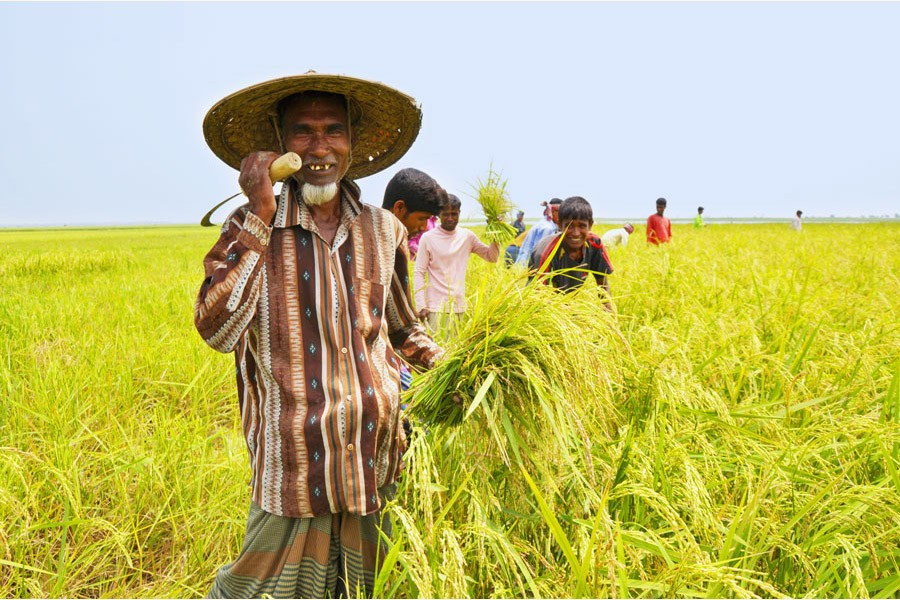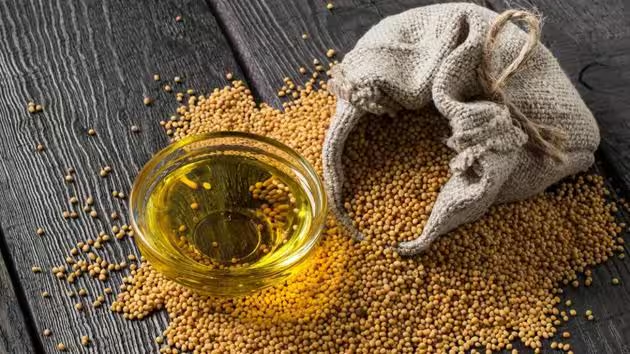
News & Stories
Sustainable Farmer Relations

Farmers are the main pillar of our food system. It is their hard work that feeds the ever-growing population of our nation. However, a lot happens to your food on its journey from farmers’ crop fields to your kitchen. And, at the heart of it all is the symbiotic relationship between farmers and large-scale FMCG food product brands, the two most important players in the game.
The Role of Farmer-Buyer Relationships
Farmer-buyer relationships are at the core of implementing large-scale development programs in the agricultural space across social, economic, and technological backgrounds. The quality of agricultural output and its impact on the planet is a matrix of system-wide adoption of newer technologies and efforts put in by the producer.
The Impact on Bengalee Cuisine
Taste and quality are of the utmost priority in Bengalee cuisine. We have aptly been dubbed “Maach e, Bhaat e Bangalee.” The quality and taste of the rice in that equation largely depend on the seeds and the farming practices used to cultivate it. A study found that 88% of Bangladeshi farmers can’t even recoup their production costs from what they receive. Decades of such malpractice from intermediaries have left farmers financially incapable of adapting modern agricultural practices and investing in market-leading seeds. So, the next time you bite into a fresh batch of warm rice and the taste just doesn’t feel right, know that a farmer is fighting for resources to provide the best for you on the other end.
Challenges in Different Crop Markets
Different crop markets have different kinds of challenges in this regard. For example, in the tea industry, we witness widespread exploitation of workers in tea fields, entrapping them in a cycle of poverty. In the mustard oil market, the lack of resources at the bottom of the supply chain pyramid leads to lower-quality oil.
So, how can we fix all of this? Well, the answer is pretty simple. We have to ensure a more equitable flow of resources to the farmers to strengthen their financial positions and provide them with ample support in adopting newer technologies to keep up with the ever-growing demand.

Solutions for Sustainable Farmer Relations
This is where sustainable Farmer Relations come in. Companies that understand the importance of quality and purity in their products understand that it starts at the bottom. A strong relationship with their farmers allows brands to leverage consumer preference by tweaking the product according to the needs of the market. Furthermore, when companies invest in farmers, farmers, in turn, can forgo cheap products like bad-quality seeds and invest in innovative solutions like Hydroponics, Efficient irrigation management, etc. This way, we aren’t just benefiting today; rather leaving a more habitable planet for the next generations.
Premium Quality is more than just a tagline, it is a commitment to the health and well-being of consumers. Our great ancestors have taught us of the benefits we receive from food items like ghee, mustard oil, etc. However, we often forget that our bodies benefit from these foods only if the producers follow the highest quality standards while producing them. Delivering premium quality products to consumers is only possible through sourcing the best raw materials from farms. And for that, we must have a healthy relationship with our farmers. These challenges will not be resolved unless the buyer market takes a stand to source their raw materials only from distributors who ensure fair wages and labor practices for the farmers and the highest quality of produce.
The first word that comes to mind when discussing this topic is Transparency – transparency in communication between farmers and consumers where the brands act as conduits.
The Role of Consumers in Sustainable Farming
As consumers, we have the power to encourage the implementation of these practices and policies by aligning our consumption practices with sustainability for farmers and the earth. Your focus on local brands and demand for sustainable practices will go a long way in changing the agricultural culture of our nation. When we, as consumers, support brands that uphold ethical standards in sourcing the best quality raw materials, we are not only doing our part in ensuring a better today and tomorrow for our farmer brothers and sisters but also protecting our and our loved ones’ health.
Conclusion
So, it’s time we move beyond just the price tag on the food packet and really question the quality of what it contains and where it comes from.
The collaborative effort of all parties involved from the brands to the government to the consumers will be essential in establishing sustainable farmer relations in the long run. Our focus on sustainable farmer-buyer relationships in the market will enrich all stakeholders within the food value chain; from the farmers to the end-consumers by ensuring a premium quality product for all.

